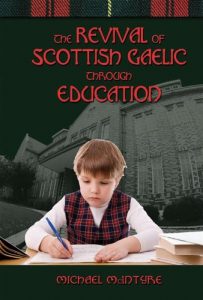Over the past 4 centuries, the Gaelic language has suffered continual decline, occasioned in part by active campaigns to eradicate it and in part by a more-or-less voluntary shift to English. Gaelic speakers, experiencing the marginalization of their culture, were shunted to the sidelines of the English-speaking imperium, except as they abandoned their native tongue and assimilated to the English-speaking hegemony, hastening the erosion of their own language and culture. Recent years, however, have seen an effort to revive the language that is unprecedented in Scottish Gaelic history, and perhaps in the history of language revival. In concordance with a worldwide concern about the demise of endangered languages, and bolstered by a newly established Scottish government (the first since the 18th century when it was dissolved and merged with the English parliament in the formation of the United Kingdom), "the Gaelic" is experiencing robust growth in opportunities for learning and, as its adherents hope, for its maintenance and revival. The revival efforts spread out across many domains, such as media and local and national governments. However, there is a particularly strong concentration of effort in formal and nonformal education as government funding, official sanction, and a multitude of nongovernmental organizations contribute to the efforts to build a foundation for a Gaelic future. Half the world's languages, subject to the erosive power of a globalized society, are expected to fade away by the end of the 21st century. This wave of language extinctions would constitute a massive loss to humanity's cultural legacy. This work enumerates the rationales for maintaining heritage languages and examines one particular exemplary campaign to reverse the slide to language death. The current establishing of a foundation for the future of Scottish Gaelic in the educational system may provide a model for other submerged groups who also seek to avert the eradication of their languages and cultures. This work seeks to answer the following questions: How can a minority group maintain its culture in the face of an increasingly globalized society? Can such a minority group even survive? What is the rationale for saving minority and endangered languages from the threat of language death? What does a concerted campaign of language education look like that is centered around the passing of a language and culture to the next generation? This is an important book for all scholars and other individuals who are interested in the Gaelic and other Celtic languages; endangered-language maintenance, survival, and revival; and issues surrounding indigenous and language-minority populations.
This site is safe
You are at a security, SSL-enabled, site. All our eBooks sources are constantly verified.






